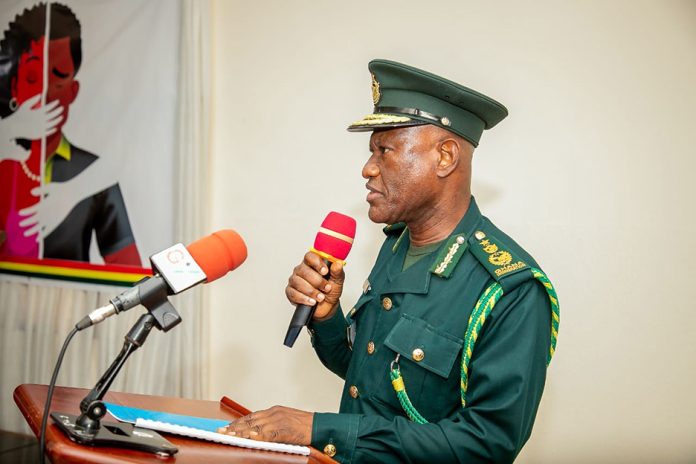The Ghana Immigration Service (GIS), in collaboration with the International Organisation for Migration (IOM) has launched a policy document on Sexual Exploitation, Abuse and Harassment (PSEAH) to raise awareness among stakeholders.
The Policy, the first of its kind among the security agencies in the country, aims to address and prevent issues of sexual exploitation, abuse and harassment within the service and among migrants.
In his welcome remarks, Comptroller-General of Immigration, Mr. Kwame Esuah Takyi, emphasised the importance of the policy in creating a culture that protects and respects women.
“The launch of this policy reaffirms our dedication to fostering a culture that is respectful, supportive and free from harassment of women,” he remarked.
He further acknowledged the global commitment to women’s rights, particularly highlighting the values of the U.S. government.
“The government of the United States has values, the rights and dignity of every woman, and we are committed to protecting and saving them,” he added.
The newly launched policy sets out clear guidelines in addressing incidents of sexual exploitation and harassment. It outlines the investigation process and the consequences for those affected.
“This policy outlines zero tolerance of forced sexual exploitation, abuse and harassment and provides clear guidelines on how to resolve incidents,” Mr. Esuah Takyi stated.
He added that education and awareness were critical elements of the policy’s prevention strategy.
“It also emphasises the importance of education and awareness to prevent sexual exploitation, abuse and harassment from occurring in the first place,” he noted.
In developing the policy, he indicated that the GIS took into account international best practices and engaged with key stakeholders, including the MAC Foundation Council.
“We took into consideration international best practices and engaged in consultations with relevant stakeholders through the MAC Foundation Council, led by Reverend Dr. C.C. Padilla and Dr. Jonathan Watkins,” Mr. Esuah Takyi said.
“The various qualitative processes show that this policy reflects diverse ethnicities and is able to address the complex nature of this problem,” he explained.
Mr. Esuah Takyi urged officers and stakeholders within the GIS to familiarise themselves with the policy and take proactive steps to create a safe and respectful environment for all.
“I urge all officers and stakeholders of the GIS to familiarise themselves with this policy, speak up against any form of harassment and support each other in creating a safe and respectful work environment,” he stressed.
He expressed his commitment to fairness and respect, emphasising the need for a united effort in ensuring that GIS remains a space where all individuals feel valued.
“Together, we can ensure that the GIS is a place where people feel valued, respected and empowered to succeed,” he affirmed.
“I would like to appreciate the efforts of the University of America for their financial support and the MAC Foundation Council for the consultations that led to the development of this policy,” he said.
He also extended gratitude to his colleagues at GIS and the officers for their continuous support in upholding the mission of the service.
The Chief of Mission for the IOM, Ms. Fatou Diallo Ndiaye, who addressed the gathering hailed the launch of the policy aimed at preventing sexual exploitation, abuse and harassment within the Ghana Immigration Service (GIS).
Ms. Ndiaye praised the collaborative efforts of the Ghana Immigration Service and the Ministry of Interior in finalising the landmark policy.
“The Prevention of Sexual Exploitation, Abuse and Harassment (PSEAH) policy is a bold step forward in tackling the pressing issue of exploitation within the immigration system and ensuring the dignity of all individuals.”
She emphasised that the policy’s introduction aligns with broader efforts in Ghana and across Africa to promote gender equality and safeguard human rights.
Ms. Ndiaye highlighted that it includes a comprehensive training program, a robust reporting mechanism and support systems for those affected.
“The collaboration between local and international partners is critical to monitoring the policy’s effectiveness and ensuring it remains adaptable and impactful,” she added.
Ms. Ndiaye expressed her optimism about the changes the policy would bring to the immigration system and Ghanaian society at large.
“This is not the end, but the beginning of continuous improvement and adaptation,” she stated.
She reaffirmed the IOM’s unwavering commitment to supporting the Ghana Immigration Service in the implementation of the PSEAH policy.
“At IOM, it is our expectation and our responsibility to ensure that this policy has a profound impact on the immigration system and society at large,” she added.








